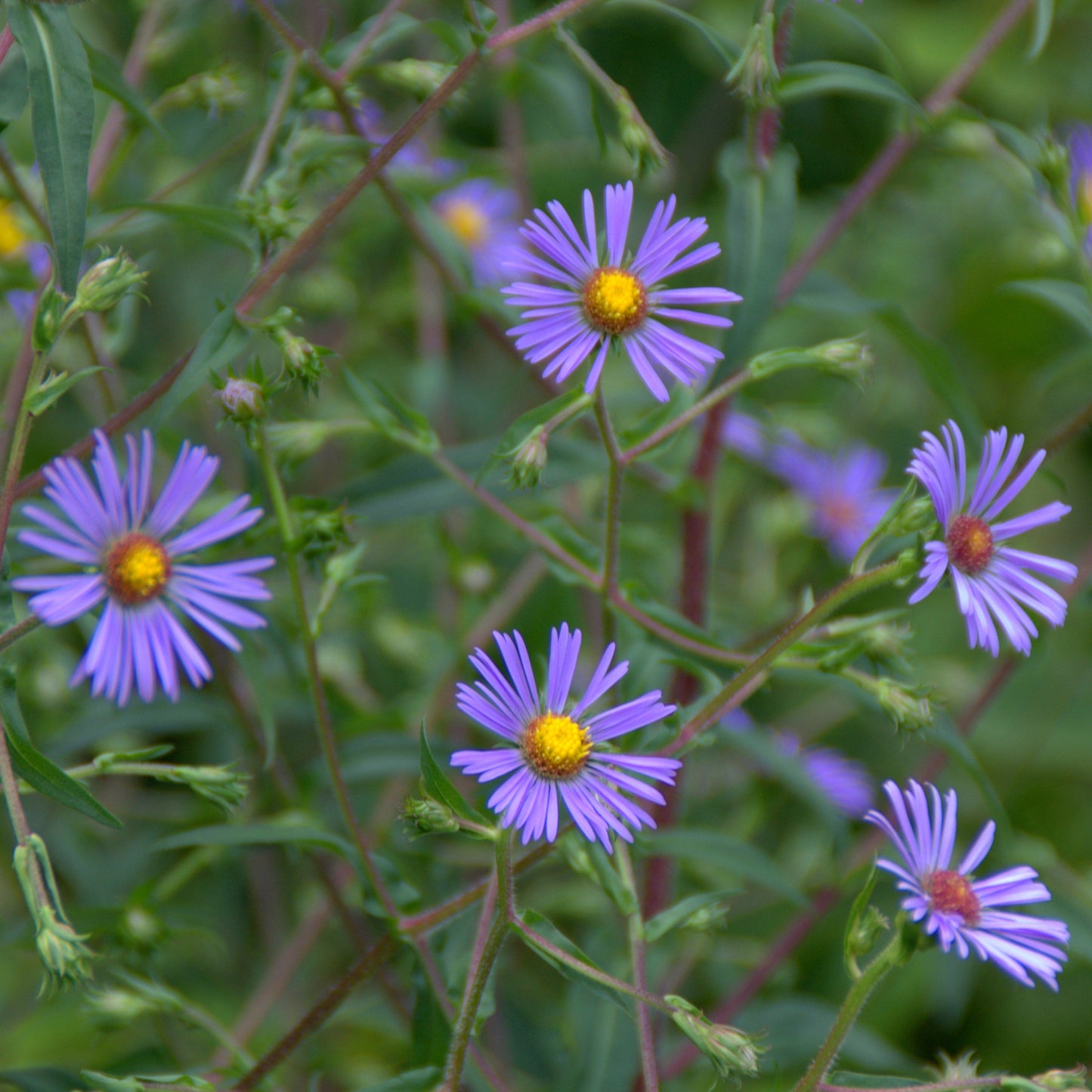Purple-stemmed aster
Symphyotrichum puniceum
Symphyotrichum puniceum
Couldn't load pickup availability
Sun/shade: Full sun to part shade
Soil moisture: Medium to wet
Height: 5'
Flowering period: September
Deer resistance: Medium
Tall and stately in form, purple-stemmed aster dons a cover of lavender flowerheads in autumn. The plant’s admirers are many, and they visit often to sip the nectar which is graciously served to guests. The butterfly crowd is usually in attendance – and always exquisitely robed. The plant is also a favorite of short and long-tongued bees, flies, wasps, and moths.
A plant of wetland environments, purple-stemmed aster inhabits swamps, marshes, and wet woods. In the garden, purple-stemmed aster grows well in consistently moist soil under full sun, but also tolerates partial shade. Maintaining a cover of leaf litter helps to increase soil organic matter and encourages the moist conditions that purple-stemmed aster likes. If soil dries out during summer droughts, purple-stemmed aster will likely need to be watered.
Purple-stemmed aster may spread via self-seeding, and due to the presence of short rhizomes, it will form a cluster of stems. This showy plant is not reported to be aggressive, though, and it is appropriate for formal settings as well as naturalized gardens. Growing up to 7’ tall, purple-stemmed aster works well towards the back of height-stratified gardens. For a colorful show, accompany purple-stemmed aster with wrinkleleaf goldenrod and white turtlehead.
Photo 1 by M. Martin Vincente. Photo 2 by Julie Slater.

